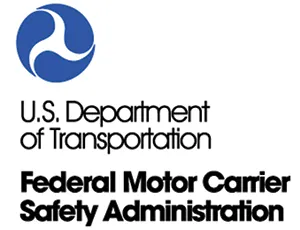Senior Reporter
FMCSA Issues Guidance on Brokerage, Dispatch Service Terms

[Stay on top of transportation news: Get TTNews in your inbox.]
The Federal Motor Carrier Safety Administration has issued final regulatory guidance on its definitions of ‘‘broker’’ and ‘‘bona fide agents,” including guidance on the role and activities of entities referred to as “dispatch services” for motor vehicle transportation.
While the agency noted it is clarifying some regulatory areas, it said the actual definitions of broker and bona fide agents largely remain unchanged from existing federal regulations.
The final guidance updates the agency’s November 2022 interim guidance in response to public comments the agency received. The review of the definitions was mandated in the Infrastructure Investment and Jobs Act, passed into law in November 2021. The mandate directed FMCSA to clarify the definitions of “broker” and “bona fide agents” to take into consideration “the extent to which technology has changed the nature of freight brokerage.”
In the final guidance, FMCSA determined that the definition of “broker” in current federal regulations is adequate. “Handling money exchanged between shippers and motor carriers is one factor that strongly suggests the need for broker authority, but it is not an essential requirement for one to be considered a broker,” the agency said in the June 15 Federal Register pre-publication announcement.

The agency in the guidance said a bona fide agent may be either an employee of a motor carrier or a contractor, but must perform its duties as specified in a pre-existing agreement between the parties.
“While FMCSA has determined that the definition of “bona fide agent” in [federal regulations] is adequate, FMCSA clarifies that the term ‘allocating traffic,’ which appears in the definition, means any exercise of discretion on an agent’s part when assigning a load to a motor carrier,” the agency said. “If an entity representing more than one carrier exercises such discretion, it would not meet the definition of ‘bona fide agent.’ ”
It continued, “If a bona fide agent represents only one motor carrier, it will assign all loads it sources to that particular carrier and thus, no exercise of discretion is necessary, and there is no dispute that the agent is not a broker. However, an agent representing multiple carriers should be careful to structure its agreements to avoid the possibility of allocating traffic.”
FMCSA noted it is unable to change the statutory definition of any terms without going through a rulemaking process.
The Transportation Intermediaries Association said it was not surprised with the language in the final guidance but stressed that the sector still faces challenges in the marketplace.

Burroughs
“As we said when the FMCSA released its interim guidance, we thought it was a positive first step but the guidance did not go far enough to address the growing concern of unlawful brokerage activities in the marketplace,” said Chris Burroughs, TIA’s vice president of government affairs. “The final guidance reaffirms that statement, and the association will now strategize how to improve on it so that it creates a level playing field for licensed entities that are doing business the right way.”
TIA has reported a rise in unlawful brokerage activities and in dispatch services that illegally broker freight by handling “traffic allocation” for multiple motor carriers without proper registration and regulatory requirements.
The infrastructure law also directed FMCSA to examine the role of dispatch services in the transportation industry, including the extent to which dispatch services could be considered brokers or bona fide agents, and to clarify the level of financial penalties for unauthorized brokerage activities applicable to a dispatch service.

Hayden Cardiff, co-founder and chief innovation officer of Idelic, discusses predictive analytics software and scoring driver practices. Tune in above or by going to RoadSigns.ttnews.com.
In the guidance, FMCSA said dispatch services fall outside of its purview.
“The existing registration statutes do not authorize FMCSA to regulate any entity in the transportation industry other than motor carriers, brokers and freight forwarders,” the agency said. “If a dispatch service or other entity does not meet the criteria for inclusion in one of these categories, FMCSA is unable to require registration or otherwise regulate that entity.”
As for the term “dispatch service,” FMCSA said some features of dispatch services include working exclusively for motor carriers, not for shippers; sourcing loads for motor carriers; and performing additional services for motor carriers that are unrelated to sourcing shipments.
Congress did not define “dispatch service” in the IIJA mandate, and the comments FMCSA received made clear that there is no universally accepted definition of the term, FMCSA said.
“FMCSA attempted to determine what constitutes a “dispatch service” by examining the role such entities play in the transportation industry and set out several common features of dispatch services in the interim guidance,” the agency said.

Bowley
Ryan Bowley, executive director of American Trucking Associations’ Moving & Storage Conference, said ATA is reviewing the final guidance, “but we are glad to see that the FMCSA reaffirmed the current law definition of broker as appropriate.”
“Additionally, the FMCSA rightly made clear that the fundamental nature of brokerage is not impacted by changing technology,” Bowley added. “There are too many unscrupulous entities who arrange household goods shipments for compensation while not following the law, hiding behind their internet-only presence as justification to not register as a broker or comply with regulations established to protect consumers.”
Want more news? Listen to today's daily briefing below or go here for more info:




